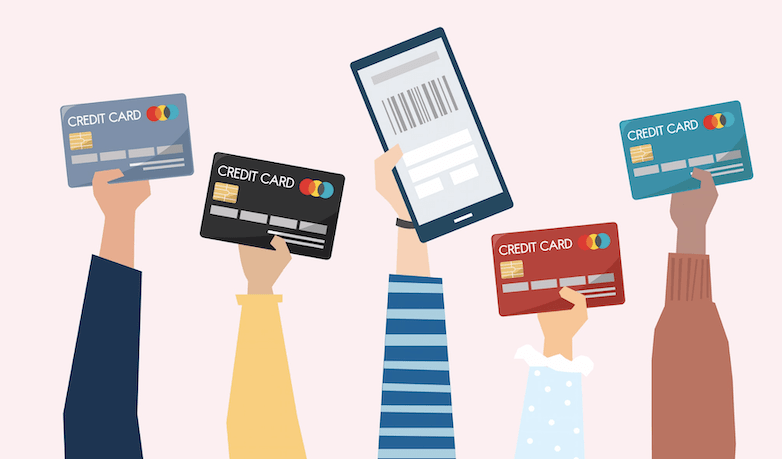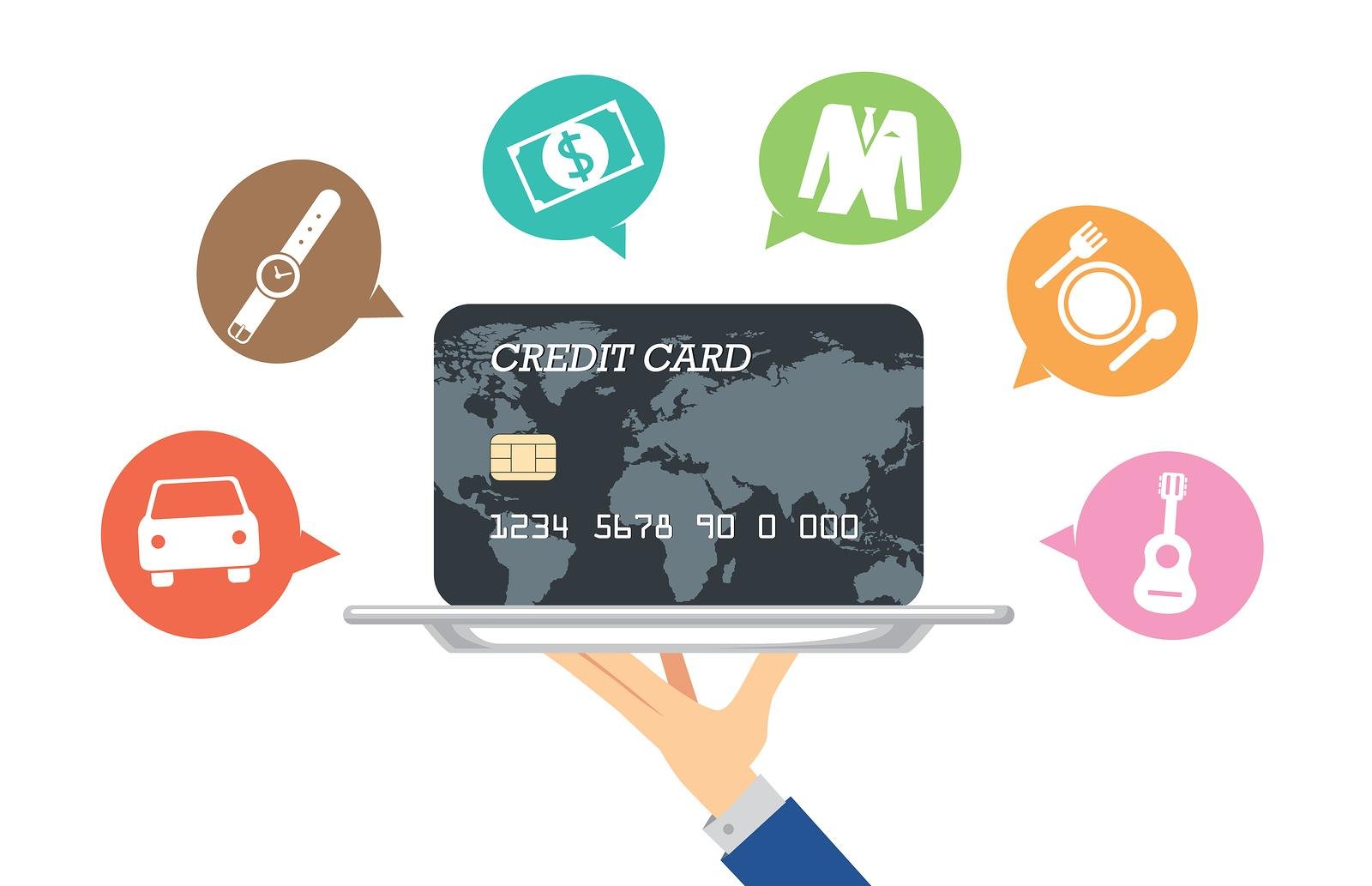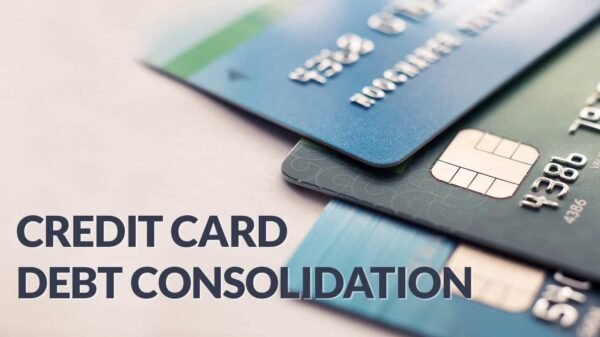The good and the bad of the use of credit cards for business expenses
Are you a business owner looking for a convenient way to manage your expenses? While credit cards can offer perks like rewards and cash back, there are also potential pitfalls to watch out for. Join us as we explore the pros and cons of using credit cards for business expenses and discover strategies for using them responsibly to maximize their benefits.”
Key takeaways:
Pros:
- Convenient and flexible payment options
- Rewards and cash back programs
- Opportunity to build credit history
Cons:
- High interest rates and fees
- Risk of accumulating debt
- Security risks and fraud potential
Best Practices:
- Choose the right credit card for your needs
- Pay off balances in full to avoid interest charges
- Monitor your spending to avoid overspending
Strategies:
- Take advantage of rewards and cash back programs
- Use credit cards for larger purchases to earn more rewards
- Make early payments to avoid interest charges
As a business owner, deciding whether or not to use credit cards for expenses can be a perplexing dilemma. On one hand, credit cards offer a level of convenience and flexibility that can’t be matched by other forms of payment. On the other hand, the potential for high interest rates and fees, as well as the risk of accumulating debt, can make the decision a difficult one.
But fear not, fellow business owners, for we are here to explore the pros and cons of using credit cards for business expenses. We’ll delve into the benefits, such as the ability to earn rewards and build credit, as well as the drawbacks, such as the risk of debt and security concerns.
Additionally, we’ll offer some sound financial management strategies to help you make the most of your credit cards while avoiding the potential pitfalls. From setting a budget and choosing the right card to negotiating lower interest rates, we’ve got you covered.
So sit back, grab a cup of coffee, and let’s dive into the world of credit cards and business expenses.
Pros of using credit cards for business expenses
Convenience and flexibility
When it comes to managing business expenses, credit cards can be a lifesaver. With the ability to make purchases without carrying cash, access credit when cash flow is tight, and even make purchases online or over the phone, credit cards offer a level of convenience and flexibility that can’t be matched by other payment methods.

Photo: – Boon credit card
One of the biggest advantages of using credit cards for business expenses is the ability to make purchases without having to worry about carrying cash. This can be especially beneficial for small business owners who may not have the resources to constantly carry large amounts of cash.
In addition, credit cards can provide a much-needed lifeline when cash flow is tight. Whether it’s due to seasonal fluctuations or unexpected expenses, credit cards can offer a much-needed safety net to help bridge the gap between paychecks.
And let’s not forget about the convenience of making purchases online or over the phone. With the rise of e-commerce and remote work, having a credit card that allows you to easily make purchases online can be a game-changer.
But the benefits of using credit cards for business expenses don’t stop there. Many credit cards offer rewards programs that can help you earn points or cash back on purchases. This can be a great way to stretch your budget and make the most of your business expenses.
And if you’re looking to build credit for your business, using credit cards responsibly can be a great way to do just that. By making timely payments and keeping your balances low, you can establish and build your business credit, potentially leading to lower interest rates on future loans.
Rewards and cash back
As a business owner, you’re always looking for ways to save money and make the most of your budget. And when it comes to managing business expenses, credit cards can be an excellent way to do just that – especially when it comes to rewards and cash back.
One of the biggest benefits of using credit cards for business expenses is the potential to earn rewards points or cash back on purchases. Many credit card companies offer rewards programs that allow you to earn points for every dollar you spend, which can then be redeemed for a variety of perks and benefits.
For example, you may be able to earn points that can be redeemed for travel, gift cards, merchandise, or even cash back. Depending on the card and the rewards program, you may be able to earn anywhere from 1% to 5% cash back on all of your purchases – which can add up quickly over time.
And when it comes to managing business expenses, those rewards and cash back programs can be a real game-changer. By earning cash back on everything from office supplies to travel expenses, you can stretch your budget even further and make the most of every dollar you spend.
But the benefits of using credit cards for business expenses don’t stop there. In addition to rewards and cash back, many credit cards offer other perks and benefits that can help you save money and manage your expenses more effectively.
For example, some cards may offer extended warranties on purchases, which can provide extra peace of mind when buying expensive equipment or technology. Others may offer travel benefits, such as free checked bags or airport lounge access, which can be especially valuable for businesses that do a lot of travel.
Of course, it’s important to keep in mind that rewards and cash back aren’t the only factors to consider when choosing a credit card for business expenses. You’ll also want to consider interest rates, fees, and other terms and conditions to make sure you’re getting the best deal possible.
But if you’re looking for a way to stretch your budget and make the most of your business expenses, credit cards with rewards and cash back programs can be an excellent option. So why not consider adding one to your financial toolkit today?
Build credit
As a business owner, you know how important it is to maintain good credit. A strong credit score can make it easier to secure financing, negotiate favorable terms on loans and leases, and even attract new customers. And when it comes to building credit for your business, using credit cards can be an effective strategy.
One of the biggest advantages of using credit cards for business expenses is the potential to build your business credit. By making timely payments and keeping your balances low, you can establish a positive credit history for your business, which can lead to lower interest rates on future loans and lines of credit.

Photo:
Bajaj Markets
And if you’re just starting out or have limited credit history, using credit cards responsibly can be a great way to establish credit for your business. By making regular payments and keeping your balances low, you can demonstrate to lenders and credit agencies that your business is a good credit risk.
In addition, using credit cards can help you keep your personal and business finances separate – which is crucial for building a strong credit history for your business. By using a separate credit card for your business expenses, you can avoid commingling your personal and business finances, which can help you establish and maintain good credit.
But building credit isn’t the only advantage of using credit cards for business expenses. Many credit cards also offer other benefits that can help you manage your business finances more effectively, such as fraud protection, purchase protection, and extended warranties.
Of course, it’s important to keep in mind that using credit cards for business expenses also comes with some risks. If you don’t make timely payments or carry a high balance, you could damage your business credit and incur hefty fees and interest charges.
So before you decide to use credit cards for your business expenses, it’s important to weigh the pros and cons carefully. But if you’re looking for a way to build credit and manage your business finances more effectively, credit cards can be a powerful tool.
Cons of using credit cards for business expenses
Interest rates and fees
While using credit cards for business expenses can offer many benefits, it’s also important to be aware of the potential downsides. One of the biggest disadvantages of using credit cards is the high interest rates and fees that can add up quickly, especially if you carry a balance from month to month.
Credit card companies often charge high interest rates on outstanding balances, which can make it difficult to pay off your debt and keep up with other business expenses. And if you miss a payment or make a late payment, you may also incur additional fees, which can add up and further strain your finances.
In addition, credit card companies often offer attractive introductory rates or rewards programs to entice customers to sign up for their cards. But these promotions can also be a double-edged sword. Once the promotional period ends, interest rates can skyrocket, leaving you with a larger-than-expected bill and little room to maneuver.
To avoid these pitfalls, it’s important to carefully read the fine print and understand the terms and conditions of any credit card you’re considering. Look for cards with low interest rates and fees, and try to pay off your balance in full each month to avoid interest charges altogether.
It’s also important to be aware of your spending habits and budget accordingly. While credit cards can be a convenient and flexible way to manage your business expenses, it’s easy to get carried away and overspend. Setting a budget and tracking your expenses can help you stay on top of your finances and avoid unnecessary fees and interest charges.
And if you do find yourself struggling with credit card debt, there are options available. You may be able to negotiate with your credit card company to lower your interest rate or set up a payment plan to help you pay off your debt over time.
Risk of debt
While credit cards can be a useful tool for managing your business expenses, they can also pose a significant risk of debt if not used responsibly. This risk is particularly acute if you’re not able to pay off your balance in full each month, as interest charges and fees can quickly pile up, making it difficult to keep up with other expenses.
One of the biggest dangers of using credit cards for business expenses is that they can create a false sense of security. It’s easy to swipe your card and forget about the expense, but that can quickly lead to overspending and an unmanageable level of debt.
Credit card companies often offer high credit limits, which can make it tempting to spend more than you can afford. And if you’re not careful, that debt can quickly spiral out of control, leaving you with a mountain of bills and little hope of paying them off.
In addition, credit card debt can also impact your personal credit score, making it more difficult to secure loans or other forms of financing in the future. And if you’re running a small business, that can have serious consequences for your bottom line.
To avoid these risks, it’s important to be diligent and disciplined when using credit cards for business expenses. Set a budget and stick to it, and avoid overspending or using credit to cover expenses that you can’t afford.
If you do find yourself struggling with credit card debt, it’s important to take action quickly. Consider working with a financial advisor or credit counselor to develop a plan for paying off your debt and getting your finances back on track.
Security risks
While credit cards can be a convenient way to pay for business expenses, they also come with security risks that you need to be aware of. With the rise of cybercrime and identity theft, it’s important to take steps to protect your financial information when using credit cards for business expenses.
One of the most common security risks associated with credit cards is fraudulent activity. Criminals can use stolen credit card information to make unauthorized purchases, leaving you with a hefty bill to pay. This can be especially damaging for small businesses that may not have the resources to absorb the financial loss.
Another security risk is the potential for data breaches. If a hacker gains access to your credit card information, they can use it to make unauthorized purchases or even steal your identity. This can lead to significant financial and reputational damage, as well as a loss of customer trust.
To mitigate these risks, it’s important to take steps to protect your credit card information. Use strong passwords and avoid using the same password for multiple accounts. Avoid making purchases on unsecured websites or over public Wi-Fi networks, as these can be easily hacked. And always monitor your credit card statements regularly to catch any fraudulent activity as soon as possible.

Photo:
Revenued
Another way to protect yourself from credit card security risks is to choose a card with built-in security features. Many credit card companies offer features like fraud monitoring, chip technology, and zero-liability protection to help protect your information and your finances.
Overall, while credit cards can be a useful tool for managing your business expenses, they do come with security risks that need to be taken seriously. By staying vigilant and taking steps to protect your information, you can minimize these risks and use credit cards safely and responsibly.
Best practices for responsible credit card use
Credit cards can be a valuable tool for managing business expenses, but it’s important to use them responsibly to avoid falling into debt or facing other financial issues. Here are some best practices to keep in mind when using credit cards for your business:
- Set a budget: Before you start using your credit card for business expenses, it’s important to have a clear understanding of your budget. Determine how much you can afford to spend each month and stick to that amount to avoid overspending.
- Pay on time: Late payments can result in high interest charges and damage to your credit score. Make sure to pay your credit card bill on time each month to avoid these issues.
- Use rewards wisely: Credit card rewards can be a great way to earn cash back or other benefits, but it’s important to use them wisely. Don’t overspend just to earn rewards, and make sure to choose rewards that are relevant to your business needs.
- Keep track of expenses: It’s important to keep track of all business expenses, including those made on your credit card. This will help you stay within your budget and ensure that you’re accurately tracking your business finances.
- Avoid cash advances: Cash advances on your credit card can come with high fees and interest rates. It’s best to avoid using this feature unless it’s absolutely necessary.
- Monitor your credit score: Regularly checking your credit score can help you identify any issues that may be impacting your credit, such as high credit utilization or late payments. This can help you take action to improve your credit and avoid future problems.
- Consider a business credit card: If you’re using your personal credit card for business expenses, consider switching to a business credit card. These cards are designed specifically for business use and can offer perks and benefits that aren’t available with personal cards.
By following these best practices, you can use credit cards responsibly and effectively for your business expenses. With proper management, credit cards can be a valuable tool for improving your cash flow and growing your business.
Strategies for maximizing credit card benefits
Credit cards offer a range of benefits for businesses, from rewards and cashback to improved cash flow and financial management. But how can you make sure you’re getting the most out of your credit cards? Here are some strategies for maximizing the benefits of your business credit cards:
- Choose the right card: Not all credit cards are created equal, and it’s important to choose one that aligns with your business needs. Look for cards with rewards that are relevant to your business, such as cashback on office supplies or travel rewards for business trips.
- Take advantage of sign-up bonuses: Many credit cards offer sign-up bonuses for new cardholders, such as cashback or points. Take advantage of these bonuses to maximize the benefits of your card.
- Use multiple cards: Using multiple credit cards can help you maximize rewards and cashback. For example, you may use one card for office supplies and another for travel expenses to earn rewards in both categories.
- Pay off balances in full: To avoid interest charges and maintain a healthy credit score, it’s important to pay off your credit card balances in full each month. This will also help you avoid falling into debt.
- Monitor your spending: Keeping track of your credit card spending can help you identify areas where you can cut back and maximize your rewards. Use budgeting tools or apps to help you track your expenses and stay within your budget.
- Redeem rewards strategically: When redeeming rewards, it’s important to do so strategically. For example, you may choose to save up rewards for a larger purchase or use them to offset a large business expense.
- Negotiate with your credit card issuer: If you’re a responsible cardholder with a strong credit history, you may be able to negotiate with your credit card issuer for better terms or rewards. Don’t be afraid to ask for what you want!
By following these strategies, you can make the most of your business credit cards and reap the benefits they offer. Whether you’re looking to improve your cash flow or earn rewards, credit cards can be a valuable tool for growing your business.
The decision to use credit cards for business expenses is a complex one with both pros and cons to consider. While credit cards can provide convenience, flexibility, rewards, and help build credit, they also come with risks such as high interest rates, fees, and the potential for debt and security breaches.
To make the most of your credit cards, it’s important to choose the right card, pay off balances in full, and monitor your spending. By following best practices and strategies for maximizing benefits, you can enjoy the rewards and financial management benefits of using credit cards for your business.
But ultimately, it’s up to each individual business owner to weigh the pros and cons and decide what works best for their unique situation. Remember to always use credit responsibly and make informed decisions to ensure the success and financial stability of your business.


















































Comment Template